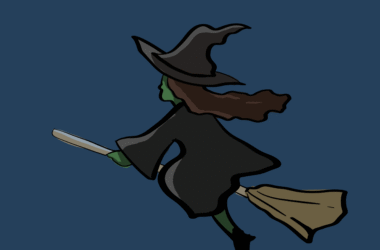 Anna Katycheva
Anna KatychevaEven if you’ve never heard of McGill’s Tuesday Night Cafe Theatre (TNC), you’ve probably wondered why there’s a 50s-inspired neon sign on the otherwise pleasant ivory tower that is the Islamic Studies building. But within the walls of this subtle structure is a world of student ingenuity and talent.
This weekend, over 50 people came to TNC’s annual 24-hour playwriting festival—one event out of the weeklong ARTifact festival. Everyday life was flipped on its head as three playwrights and tens of amateur actors and stage crew dove headlong into utterly new and challenging material. The night seemed to give a resounding answer, full of gusto, to the question lurking in the back of many of our heads: “Why theatre?”
The first play of the evening, written by Danji Buck-Moore, began with a challenge to the audience to justify why they would choose one “Lavid Dynch” film over another. It then proceeded to tell the story of a young man who desperately sought the precious attention of the idolized director, only to find that he himself was acting in a farce. The show played with viewers’ sensibilities of how theatre is meant to work and with the tendency to mythologize artists at the expense of a powerful dramatic experience. As the plot thickened, spectators were intimately introduced to a narrative device in human form: a dinosaur-tailed antagonist playing a recorder and two New Age disciples of Dynch who were connected at the neck by a scarf. In an effort to involve the crowd, the duo gently wrapped an audience member in their yarn.
The second show, written by Lara Oundjian, cleverly emphasized the role of acting in everyday life. Her piece began with a surreal gunfight that turned out to be a children’s game. It went on to follow the lives of four friends as they dealt with their flaws through therapy, constantly revisiting their early memories. As the characters developed, they found that re-enacting their unconventional and imaginative childhood dramas and dreams is the most reliable way to deal with their growing pains.
After the three half-hour performances finished, McGill English professor and judge Myrna Wyatt Selkirk commented that the success of the evening came from the emphasis on “respect” and “fun.” ARTifact coordinator Ben Bengtson echoed similar sentiments.
“It’s all about having fun,” he said. “And I know that’s kind of a generic word, but it really just translates into high energy.” He emphatically praised the amateur actors for their genuine and unadulterated respect of the play, particularly under time constraints.
“They have such knowledge of the conventions of the theatre,” he says. “They’re making smart decisions out there instinctually.”
“I sat down and I just let my brain do its thing,” says playwright Stuart Wright of the process of writing a play in 24 hours. “I like to think of plays as dreams that a whole community can share at once. I hope that, at best, there was a very strange and meaningful dream.”
While people often judge the performing arts based on tomato-meters and star quality, ARTifact demonstrated that suspending judgment and physically participating are crucial to a lively and communal theatrical experience.
Bengtson described the experience of grappling with this kind of performance: “You start to think about it and then you say, ‘Ah I’m just gonna go with it.’ That’s what theatre is.”
A less verbal response came from theatre-goer Chad Simmonds who fell off his chair quite loudly, twice, during the course of the night.
To find out more about theatre at McGill, visit mcgillstage.com






